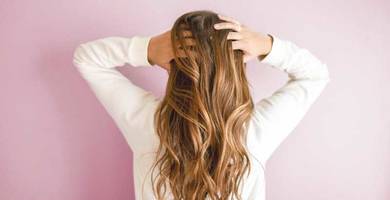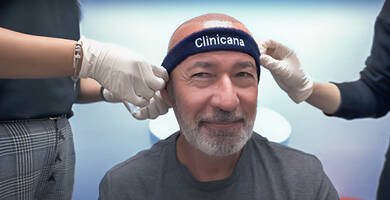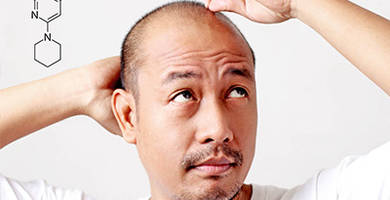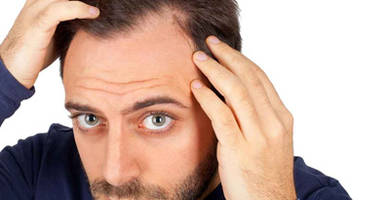Nutritional factors and supplements in hair loss
By Prof. Dr. Soner Tatlidede 2019-09-11
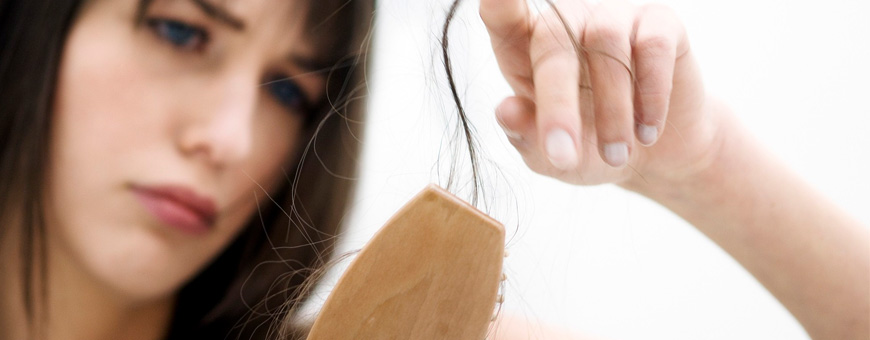
What nutritional factors may cause hair loss? What are the best supplements for hair loss? All these questions come to mind when we are experiencing hair problems or if we are thinking of any treatment or operation to solve our hair loss problems, like for example a female hair transplant in Turkey.
Hair grows continuously with an average of 0.35 mm per day and sheds. Hair is the fastest growing tissue in our body, just after bone marrow. Hair follicles that produce hair therefore require calories, proteins, trace elements and vitamins for this intense biosynthesis activity.
The lack of elements and vitamins necessary for the regular processing of energy, essentials and metabolic structure of human body will cause hair loss, trigger hair disease or make the disease resistant to treatment. Therefore, both the quality and the quantity of hair growth are closely related to nutrition: that´s why it´s usual to recommend taking vitamins for hair loss, for example. Let´s see all these factors in detail.
Nutritional factors: energy
Hair follicles need energy in order to maintain the high rate of mitosis. This energy is mainly provided by carbohydrates. When a low-calorie diet is received, follicle tries to supply the required energy from amino acids.
Thereby, both energy and the essentials of body are reduced. Hair becomes thinner, breaks easily and it is reduced in density. Lanugo hair may increase, too. This can be seen in cases of marasmus, and in children and those who have low-calorie diets, especially when the daily calorie intake falls below 1,000 kcal.
Protein deficiency
Proteins, called as keratin, form 80% of the chemical structure of hair. So, hair is severly affected in case of an incomplete intake of proteins. Hair gets dull, easily falls out and telogen effluvium is seen.
Protein deficiency symptoms in hair loss can be easily detected. Persons with lack of proteins can feel his/her hair soft, but that it has lost its elasticity. Hair colour might be lightened (hypochromophilia). Protein deficiency can also appear as Kwashiorkor in children. Low protein intake without malnutrition can be seen in infants who are fed with poor milk feeding, gastrointestinal diseases, anorexia nervosa, drug addicts and malignancies.
Iron deficiency
Despite the indisputable need for iron in high biosynthesis environment, the role of iron in hair loss has not been fully clarified. Sensitivity of the methods used to detect iron deficiency is especially important in hair diseases. The question is to clarify if iron deficiency (anaemia) causes hair loss.
Once patient’s iron level decreases, anaemia develops at the last point. Iron, required for the construction of haemoglobin, is firstly mobilized in hair follicles; for this reason, it is possible to suffer hair loss long before anaemia occurs in blood.
Although not every person with iron deficiency suffer from hair loss, it is accepted that discharge of iron deposits in the genetically susceptible people cause hair shedding. So, maintain the iron deposits to the desired levels may solve hair loss problems.
Serum ferritin level is the best laboratory test to demonstrate iron deficiency. In studies, ferritin levels were evaluated and 41 ng/ml level was detected to show iron deficiency with 98% sensitivity. There is no standardization in ferritin levels for ideal hair growth, but studies have shown that telogen phase is increased when serum ferritin falls below 40 ng/ml; telogen phase is longer at 40-70 ng/ml, and hair goes through normal anagen phase above 70 ng/ml.
Zinc
Although zinc is the first thing come to mind among hair loss causes, there is no convincing data about the relation between zinc deficiency and hair loss. Indications of zinc deficiency include periorificial dermatitis, angular cheilitis, diarrhoea and alopecia. Some studies suggest that there may be underlying zinc deficiency in long-term alopecia areata cases resistant to treatment, and that these patients will benefit from taking zinc for hair loss.
Zinc deficiency is also seen in acrodermatitis enteropathica, a rare form of genodermatosis. Irregular bands, called as trichothiodystrophy, are monitored in the polarized microscope, and hair appears thinner. If a zinc dosage is given, it should not exceed 30 mg/day since zinc deteriorates the absorption of iron, calcium and copper; it also should be taken 2 hours after iron dosages.
In the presence of normal zinc level, zinc supplementation doesn’t has any additional contribution to hair growth.
Amino acids
Characteristic of the keratin, which constitutes 80% of hair, is the high sulphur content. This sulphur is derived from cystine amino acids. Cystine is known to have positive effects on hair growth. Improvement has been reported in tricogram and phototricogram results, hair quality and hair durability when cystine is given with B complex vitamins.
It is thought that Vitamin B6 helps cystine to be diffused in hair follicles, and this system contributes to hair growth by making glutathione-mediated detoxification. Therefore, the lack of this amino acid may have side effects in the form of hair loss.
L-lysine is another essential amino acid that can be important in hair growth. Since L-lysine intake is exclusively restricted to meat, fish and eggs, the lack of consumption of these foods (e.g. in vegetarians) might cause problems in hair growth. Although the role of this amino acid is not known clearly, it is accepted that lysine is necessary for zinc and iron fixation.
Vitamin deficiency
Many people wonder about which vitamin deficiency causes hair loss. Well, vitamin B12 is often associated with hair loss; however, it has no role recognized in hair growth. Biotin (vitamin H) and niacin (vitamin B3) are also known to have positive effects on hair growth.
Experiments conducted on animals showed that the lack of biotin causes hair shedding. However, biotin supplementation is not significant in non-deficient individuals, so it doesn´t stimulate hair growth. Biotin deficiency is in fact a rare nutritional disorder, caused by consuming raw eggs.
Our doctors at Clinicana also state that vitamin D gets significantly lower in alopecia areata patients, and that the deficiency is correlated with the severity of disease. Vitamin D is known to play a role in hair growth, differentiation and hair cycle. In this regard, we recommend our patients (especially females) to have regular tests of vitamin D and receive supplementation in case of deficiency.
In summary, there are many nutritional factors that may trigger hair loss, and in fact hair shedding can be an important sign of a health problem or a nutritional deficiency. Normally taking supplements or vitamins can stop hair loss. In the worst cases however, special treatments or even a hair transplant may be necessary to correct the secondary effects. Do not forget that at Clinicana you have a free consultation service: we´ll be glad to help you.




